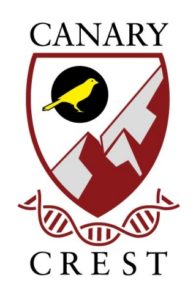
A.I.-Based Decision Support Systems for Precision & Participative Medicine:
Focus on Oncology and Radiomics
Join via Zoom: https://stanford.zoom.us/j/499245954
Abstract:
Precision medicine is the future of health care: please watch the animation at https://vimeo.com/241154708. As a technology-intensive and -dependent medical discipline, oncology will be at the vanguard of this impending change. However, to bring about precision medicine, a fundamental conundrum must be solved: Human cognitive capacity, typically constrained to five variables for decision making in the context of the increasing number of available biomarkers and therapeutic options, is a limiting factor to the realization of precision medicine. Given this level of complexity and the restriction of human decision making, current methods are untenable. A solution to this challenge is multifactorial decision support systems (DSSs), continuously learning artificial intelligence platforms that integrate all available data-clinical, imaging, biologic, genetic, cost-to produce validated predictive models. DSSs compare the personalized probable outcomes-toxicity, tumor control, quality of life, cost effectiveness-of various care pathway decisions to ensure optimal efficacy and economy. DSSs can be integrated into the workflows both strategically (at the multidisciplinary tumor board level to support treatment choice, eg, surgery or radiotherapy) and tactically (at the specialist level to support treatment technique, eg, prostate spacer or not). In some countries, the reimbursement of certain treatments, such as proton therapy, is already conditional on the basis that a DSS is used. DSSs have many stakeholders-clinicians, medical directors, medical insurers, patient advocacy groups-and are a natural consequence of big data in health care. Here, we provide an overview of DSSs, their challenges, opportunities, and capacity to improve clinical decision making, with an emphasis on oncology and radiomics.
About:
Philippe Lambin is a Clinician, Radiation Oncologist, with a PhD in Molecular Radiation Biology, “ERC advanced grant laureate”, co-inventor of Radiomics, multifactorial Decision Support Systems, Distributed learning, the use of immunocytokines with Radiation and pioneer in translational research with a focus on tumour hypoxia and immunotherapy. He is/has been leading 30 clinical trials. He has and is Professor at the University of Maastricht (head of the new Dpt of Precision Oncology: The D-Lab & The M-Lab, focusing on “Convergence Sciences” and Decision Support Systems. He is co-author of more than 488 peer reviewed scientific papers (Hirsch Index: 94 Google scholar), co-inventor of more than 17 patents (filed or submitted) of which 5 are in the (pre)commercialization phase and (co) promoter of more than 59 completed PhD’s.
Refreshments will be provided.

PHIND Seminar August
Mehmet Ozgun
“Extracellular Vesicles for Broad Applications in Medicine and Cancer”
About Mehmet O. Ozen, PhD
Dr. Ozen is a Postdoctoral Research Fellow at Canary Center for Cancer Early Detection / Radiology Department at Stanford University. He works with Prof. Utkan Demirci on simple solutions for complex problems in medicine, combining microfluidics and bioengineering principles. He received his BS and PhD in Bioengineering from Ege University.
Abstract
Extracellular vesicles (EVs) are lipid bi-layered nanoparticles shed from the cells that carry RNA, DNA, transmembrane and cytosolic proteins. The variety in EV size, cargo and origin attracted researchers to decipher the mechanisms that have been involved in packaging, secretion, uptake and roles of EVs on cells in vivo and in vitro, lightening the path for biomarker studies for diagnosis, prognosis, therapy and therapy monitoring. They are one of the many means that cells use to communicate with neighboring and distant cells and tissues. With improvements in next-generation sequencing technologies and increased resolution of mass spectrometry for proteomic analysis, EVs have been shown to take role in angiogenesis, epithelial-to-mesenchymal transition, stemness in cancer, malignancy, metastasis and drug resistance.
Although exosomes show unprecedented promising advantages over other biotargets in the circulation for clinical use, a major challenge rapidly emerging in the field of EV utilization for clinical and non-clinical applications is the absence of reproducible, inexpensive and robust tools for efficient sorting and isolation of EV populations at a high yield. The field lacks a clear consensus over an optimum approach or a tool for isolation of EVs avoiding contamination with many other proteins and such other biostructures and reproducible procedures for downstream analysis of EV cargo and content. Existing approaches for EV isolation include a variety of methods. Additionally, methods for the exosome-derived analyte isolation, library preparation for sequencing, and downstream analysis including genomic, proteomic and metabolic analysis are highly varied. Hence, there is a need for well-developed experimental tools, interlaboratory evaluations and in-depth descriptions of experimental steps and designs to ensure reliable, robust and reproducible experiments and tools.
In this talk, we will describe a new technique, i.e., Exosome Total Isolation Chip (ExoTIC), that is developed in our lab to isolate EVs and EV subpopulations from a variety of sample types including plasma and culture media. We will present further downstream genomic and proteomic analysis of these EVs focusing on applications in cancer and cardiovascular disorders.

Alex K. Shalek, PhD
Pfizer-Laubach Career Development Associate Professor
Institute for Medical Engineering & Science
Department of Chemistry and Koch Institute
Massachusetts Institute of Technology
Abstract: While several methods exist for sampling tissues in clinical contexts, without high-fidelity tools for comprehensively profiling them, we are both limited in our capacity to understand how constituent cells and their interactions impact prognosis, and to select and develop precision therapeutics. Recent years have witnessed transformative and intersecting advances in nanofabrication and molecular biology that now enable deep profiling of low-input samples. Collectively, these afford new and exciting opportunities to study cellular heterogeneity, starting from the level of the single cell, and may unlock the diagnostic, prognostic, and discovery potential of clinical isolates. Illustratively, I will introduce how we can leverage single-cell genomic approaches – and, in particular, single-cell RNA-Seq – to explore the extensive functional diversity between cells, uncovering, from the “bottom-up,” distinct cell states and their molecular drivers. Moreover, I will discuss high-throughput experimental strategies and demonstrate, in the context of Acute Lymphoblastic Leukemia, how they can be leveraged to achieve the statistical power necessary to reconstruct intracellular circuits, enumerate and redefine cell states and types, and transform our understanding of cellular decision-making in health and disease on a genomic scale.
Bio: Alex K. Shalek is currently the Pfizer-Laubach Career Development Associate Professor at MIT, as well as a Core Member of the Institute for Medical Engineering and Science (IMES), an Associate Professor of Chemistry, and an Extramural Member of The Koch Institute for Integrative Cancer Research. He is also an Institute Member of the Broad Institute, an Associate Member of the Ragon Institute, an Assistant in Immunology at MGH, and an Instructor in Health Sciences and Technology at HMS. His research is directed towards the development and application of new technologies that facilitate understanding of how cells collectively perform systems-level functions in healthy and diseased states. Dr. Shalek received his bachelor’s degree summa cum laude from Columbia University and his Ph.D. from Harvard University in chemical physics under the guidance of Hongkun Park, and performed postdoctoral training under Hongkun Park and Aviv Regev (Broad/MIT). To date, his interdisciplinary research has focused on realizing and utilizing nanoscale manipulation and measurement technologies to examine how small components (molecules, cells) drive systems of vast complexity (cellular responses, population behaviors).

Stanford Radiology Diversity Initiative
Diversity is essential to the progress, growth, and prosperity of Medicine and its microcosmoses. The Stanford Radiology Diversity Initiative aims to democratize Medicine by assembling and maintaining a critical mass of diverse faculty with far-reaching backgrounds, experiences, and ideas. Diversity is critical for our ability to serve patients in a multi-cultural environment, to provide inspiring role models for our trainees, to unfold discoveries at the interface of different disciplines, to address challenges in our health care system and to cure humanity – one patient at a time.
11:00am-12:00pm – Panel Discussions
12:00pm-1:00pm – Grand Rounds
1:00pm-2:30pm – Diversity Food Fair
2:30pm-3:30pm – Imposter Syndrome Workshop
3:30pm-4:30pm – SMAC symposium
View event details – http://med.stanford.edu/radiology/events/diversity-fair.html

Abstract: Gene editing with CRISPR technology is transforming biology. Understanding the underlying chemical mechanisms of RNA-guided DNA and RNA cleavage provides a foundation for both conceptual advances and technology development. I will discuss how bacterial CRISPR adaptive immune systems inspire creation of powerful genome editing tools, enabling advances in both fundamental biology and applications in medicine. I will also discuss the ethical challenges of some of these applications with a focus on what our decisions now might mean for future generations.
About: MIPS IMAGinING THE FUTURE seminar series is aimed at catalyzing interdisciplinary discussions in all area of medicine and disease. The seminar series is open and free to everyone in the Stanford community, as well as anyone from the surrounding community, companies or institutions. Our next seminar will host Dr. Jennifer Doudna, Professor of Chemistry, Biochemistry & Molecular Biology, &Li Ka Shing Chancellor’s Professor in Biomedical and Health, University of California, Berkeley; for her presentation on the “World of CRISPR: Editing Genomes and Altering Our Future”.
More Information: http://med.stanford.edu/radiology/imagining-the-future.html
Register: https://www.onlineregistrationcenter.com/JenniferDoudna


